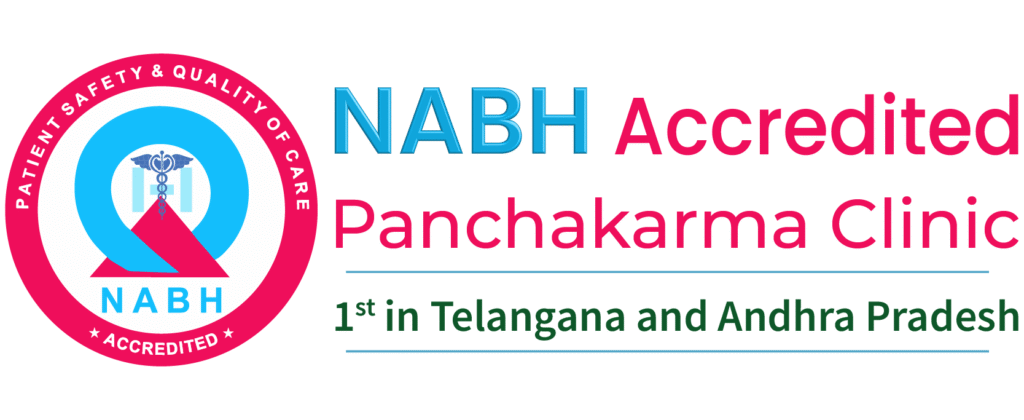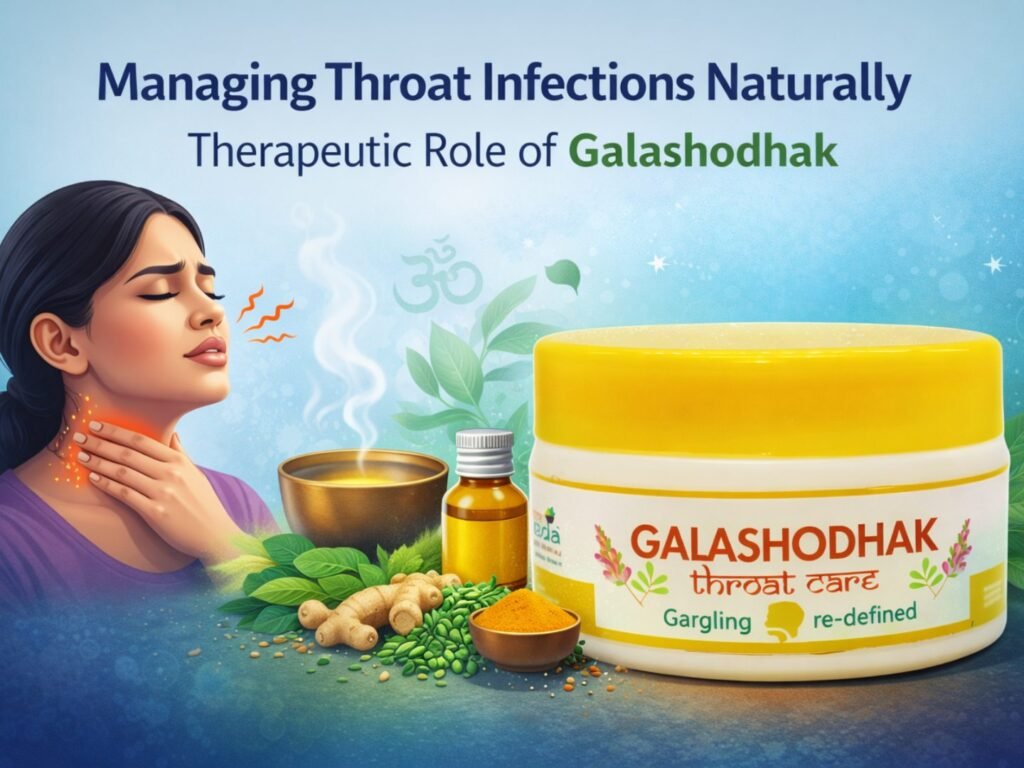Ayurveda offers holistic therapies for managing PCOS symptoms, focusing on balancing the doshas. Irregular cycles and hormonal imbalances can be addressed through personalized herbal remedies and lifestyle changes. Nutrient-rich diets with whole foods, healthy fats, and spices like turmeric are essential. Regular physical activity, mindfulness practices, and stress reduction techniques also play a key role. These often-overlooked approaches provide a thorough strategy to alleviate PCOS symptoms, guiding individuals toward wellness. More insights await those seeking effective solutions.
Understanding PCOS: Symptoms and Causes
Polycystic Ovary Syndrome (PCOS) is a complex hormonal disorder that affects many women of reproductive age. Characterized by irregular menstrual cycles, elevated androgen levels and polycystic ovaries, PCOS presents a myriad of symptoms that can greatly impact quality of life. Women may experience weight gain, acne, excessive hair growth and infertility. The causes of PCOS remain multifaceted, often involving genetic predispositions, insulin resistance and environmental factors. Hormonal imbalances disrupt normal ovarian function, leading to the development of cysts.
For many women seeking holistic solutions, consulting the best Ayurvedic doctor in Bangalore provides personalized strategies to manage these symptoms naturally.
Understanding these symptoms and underlying causes is essential for innovative approaches to management and treatment. By recognizing the diverse manifestations of PCOS, healthcare professionals can tailor interventions that address the unique needs of each individual, fostering a holistic approach to wellness.
The Ayurvedic Perspective on PCOS
Ayurveda, the ancient system of medicine from India, offers a unique lens through which to understand and manage PCOS. This holistic approach emphasizes the balance of the three doshas—Vata, Pitta, and Kapha—believing that an imbalance contributes to PCOS symptoms. Ayurveda identifies the condition as a manifestation of deeper imbalances, often linked to stress, lifestyle, and hormonal fluctuations. By incorporating personalized treatments, including herbal remedies and therapeutic practices, Ayurveda seeks to restore equilibrium and enhance overall well-being.
Visiting a certified NABH Ayurvedic Panchakarma clinic in Bangalore ensures treatments that align with classical Ayurvedic principles while meeting modern quality standards.
Innovative techniques such as yoga and meditation are also integral, promoting mental clarity and relaxation, which can alleviate symptoms. This multifaceted perspective encourages a thorough understanding of PCOS, positioning Ayurveda as a valuable ally in modern health management.
Dietary Recommendations for Balancing Hormones
When seeking to balance hormones affected by PCOS, dietary choices play an essential role. Emphasizing whole, unprocessed foods can greatly impact hormonal health. Incorporating a variety of fruits and vegetables guarantees a rich intake of antioxidants and essential nutrients. Whole grains, such as quinoa and brown rice, provide sustained energy while minimizing blood sugar spikes. Healthy fats from sources like avocados and nuts support hormonal balance and reduce inflammation. Additionally, incorporating protein from legumes and lean meats can help stabilize insulin levels. Spices such as turmeric and cinnamon not only enhance flavor but also possess properties that promote metabolic health. By adopting a balanced, nutrient-dense diet, individuals can harness the power of nutrition to alleviate PCOS symptoms and foster hormonal equilibrium.
Herbal Remedies to Support Reproductive Health
Exploring herbal remedies can offer valuable support for reproductive health in individuals with PCOS. Certain herbs, such as Ashwagandha and Shatavari, are celebrated for their adaptogenic properties, which may help balance hormonal fluctuations. Additionally, spearmint tea has garnered attention for its potential to reduce elevated androgen levels, fostering improved menstrual regularity.
Moreover, the incorporation of turmeric, known for its anti-inflammatory benefits, may enhance ovarian function. Other promising herbal allies include Vitex, which has been linked to improved luteal phase support and fenugreek seeds, believed to enhance insulin sensitivity.
For women struggling with conception, holistic approaches such as Ayurvedic treatment for infertility in CV Raman Nagar, Bangalore, combine herbal therapies and Panchakarma to improve reproductive health naturally.
By integrating these innovative herbal solutions into a holistic approach, individuals with PCOS may find a path toward enhanced reproductive health and overall well-being.
Lifestyle Modifications for Managing PCOS Symptoms
In addition to herbal remedies, lifestyle modifications play a significant role in managing PCOS symptoms. Integrating a balanced diet rich in whole foods, such as fruits, vegetables and lean proteins, can enhance metabolic function. Regular physical activity, including innovative approaches like yoga or high-intensity interval training, can improve insulin sensitivity and reduce stress levels. Mindfulness practices, such as meditation or breathwork, foster emotional well-being and hormonal balance. Adequate sleep and hydration further support overall health, contributing to symptom alleviation. By adopting these holistic lifestyle changes, individuals can empower themselves to navigate their PCOS journey with greater resilience, embracing a proactive approach that harmonizes with Ayurvedic principles. This multifaceted strategy holds promise for innovative symptom management in the quest for balance.
Frequently Asked Questions
- Can Ayurveda Cure PCOS Completely, or Just Manage Symptoms?
The effectiveness of Ayurveda in addressing polycystic ovary syndrome (PCOS) raises an intriguing question. While some practitioners advocate for its potential to alleviate symptoms through holistic methods, a definitive cure remains elusive. Ayurveda emphasizes personalized treatment, focusing on balance and overall well-being, which may reduce symptoms rather than eradicate the condition entirely. As research evolves, the integration of innovative approaches combining traditional practices with modern science may offer new insights for those affected by PCOS.
- How Long Does It Take to See Results From Ayurvedic Treatments?
The timeline for observing results from Ayurvedic treatments can vary greatly depending on individual circumstances. Typically, individuals may start to notice improvements within a few weeks to several months. Factors influencing the duration include the specific condition being treated, the person’s overall health, adherence to prescribed therapies, and lifestyle changes. Ultimately, patience and consistency are essential as Ayurveda focuses on holistic healing, which can take time to manifest noticeable benefits.
- Are There Any Side Effects of Ayurvedic Herbs for PCOS?
The potential side effects of Ayurvedic herbs for PCOS can vary based on individual reactions and the specific herbs used. Some individuals may experience gastrointestinal discomfort, allergic reactions or interactions with other medications. It is essential for users to consult a healthcare provider before starting any herbal regimen. While Ayurvedic treatments offer innovative approaches to symptom management, awareness of possible side effects guarantees a more informed and safer experience for those seeking alternative therapies.
- Can Ayurvedic Practices Be Combined With Conventional Medicine for PCOS?
Ayurvedic practices can indeed be combined with conventional medicine for managing PCOS. Integrating these holistic approaches may enhance treatment efficacy and provide a broader range of symptom relief. By addressing both physiological and psychological aspects, this integration fosters a thorough management strategy. However, it is essential for individuals to consult healthcare professionals to guarantee safety and compatibility, thereby creating a synergistic effect that could lead to improved health outcomes and overall well-being.
- Is Ayurvedic Treatment Safe During Pregnancy for Women With PCOS?
The safety of ayurvedic treatment during pregnancy for women with PCOS remains a complex issue. While some practitioners advocate for certain herbal remedies and dietary adjustments, concerns about potential interactions with conventional medications and the effects on fetal development persist. It is essential for individuals to consult healthcare professionals before starting any ayurvedic regimen during pregnancy, ensuring that both maternal and fetal health are prioritized in the management of PCOS symptoms.












